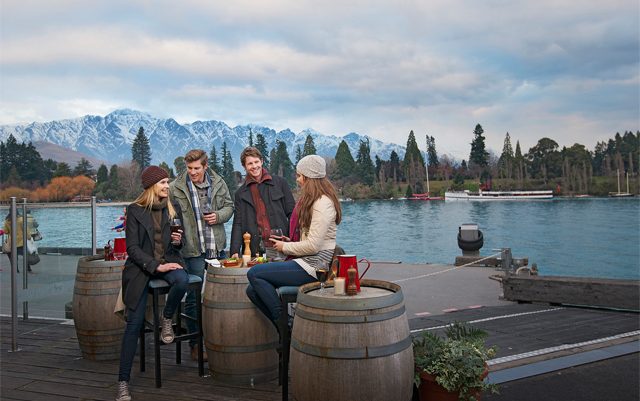New Zealand is a country that loves to drink. In a country where cannabis is strictly banned, New Zealanders as a population have some of the higher drug-use rates in the developed world, according to governmental studies. The most popular recreational drug – alcohol. Dunedin happens to be a mecca for alcoholics, says one resident and university researcher, Abe Gray. The university student culture incubates the perfect venue for freshman and young teens to gather, drink…and riot.
“For two nights … in that student area, confined to about two blocks, there was chaos, and that chaos was fueled by alcohol,” said New Zealand Prime Minister John Key about the infamous 2009 Undie 500 car rally.
In 2013, the National Addiction Centre at the University of Otago estimated that around 10 per cent of New Zealand’s population of 4.4 million was alcoholic. It’s a problem political actors like Abe Gray see in places like Dunedin. For Gray, highlighting the undue scrutiny placed upon cannabis users could be better served by curbing the violence and death resulting in the wake of New Zealand’s alcohol abuse problem.
States in America that have recreational marijuana, such as Colorado and Washington, have yet to result in definitive data supporting one drug is less dangerous than the other. However, states like Massachusetts and Arizona are looking to legalize cannabis next month. Using state ballot initiatives and stats, they hope to regulate marijuana like alcohol.
Marijuana is objectively safer than alcohol
- According to a recent report from researchers at Rice University, “Alcohol causes far more personal and social damage than any other drug.”
- An often cited study from 1994 found that alcohol is nearly twice as addictive as marijuana.
- A 2015 study published in Scientific Reports found that marijuana is 114 times safer than alcohol, based on the concept of “margin of exposure,” which measures the likelihood of an average user accidentally ingesting a toxic dose.
- According to a 2014 World Health Organization study, marijuana use is correlated with lower rates of domestic violence, while significant research has established that alcohol use is correlated with higher rates of intimate partner violence.
Cannabis is the most widely used illicit drug in New Zealand and nearly half (42%) of all adults over 15 have tried it, reports the New Zealand Drug Foundation. A recent Drug Foundation-Curia poll from August 2016 finds that two-thirds of Kiwis want to end criminal penalties for cannabis possession, and up to 82% support for medical use. Other polls, like the TVNZ poll from April, reveal a majority of New Zealanders are in favor of the use of medical marijuana.
“Let the people have medical marijuana better than the synthetics our government once condoned,” says Gray.
New Zealand has a checkered past with cannabinoids, the active compound in the cannabis plant. In the past, they allowed the development of synthetic cannabinoids as a legal alternative to cannabis; also known as “Spice” and “K2” in the states. Recently, New York City had a staggering case of more than 30 users suffering from the terrible effects of synthetic cannabinoids. It wasn’t until May 8, 2014, following protests against the drug, that it became illegal to sell or use it in New Zealand.
“Cannabis culture can have positive effects on the health, economy, and failed drug policy in New Zealand” said Gray, “That’s one of the many reasons I’m running for mayor of Dunedin.”






